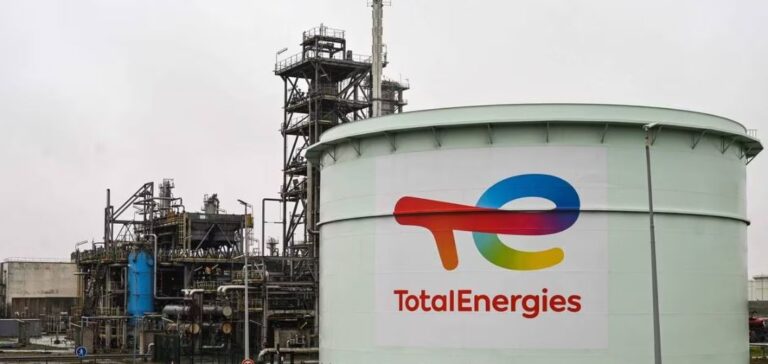Energy giant TotalEnergies has announced a reduction in its investments in low-carbon energy for 2025, in response to a less favorable energy environment than in previous years. This decision comes as the group reports a 26% decline in net profit, reaching $15.8 billion in 2024, after two years of record-breaking results.
Refocusing on profitability
TotalEnergies plans a net investment budget between $17 billion and $17.5 billion for 2025. However, the portion allocated to low-carbon energy is reduced from $5 billion to $4.5 billion, particularly in the electricity sector. This strategic choice aligns with a trend observed among other European oil majors like Shell, BP, and Equinor, which have also scaled back their commitments to renewable energy.
CEO Patrick Pouyanné justified this shift by pointing to the declining profitability of low-carbon energy, explaining that energy prices were less volatile in 2024 compared to the exceptional levels of 2022 and 2023. Refining margins also saw a significant decline, impacting the group’s overall performance.
Shareholders remain a priority
Despite lower profits, TotalEnergies maintains a shareholder-friendly policy. The group announced a 7.6% increase in its 2024 dividend and the continuation of its share buyback program, with a budget of $2 billion per quarter. This strategy, in place since late 2022, means the group will contribute to the new French tax on share buybacks, which could amount to between €100 million and €150 million.
On the fiscal front, TotalEnergies estimates its contribution to French public finances in 2024 will exceed €2 billion, including all forms of taxes and duties. However, regarding corporate tax on profits in France, Patrick Pouyanné stated that the group is unlikely to pay much, if anything, due to accumulated losses in the country.
New York listing project confirmed
The project to list TotalEnergies on the New York Stock Exchange, first mentioned in 2023, remains a strategic priority for the group. The goal is to increase stock liquidity by making it accessible to a larger number of U.S. investors. Patrick Pouyanné clarified that this move does not constitute a dual listing but rather ensures continuity with the European market, allowing the stock to be traded seamlessly from Paris to Wall Street.
This positioning comes as oil majors seek to optimize their attractiveness to investors while adjusting their strategies in response to a shifting energy market.






















